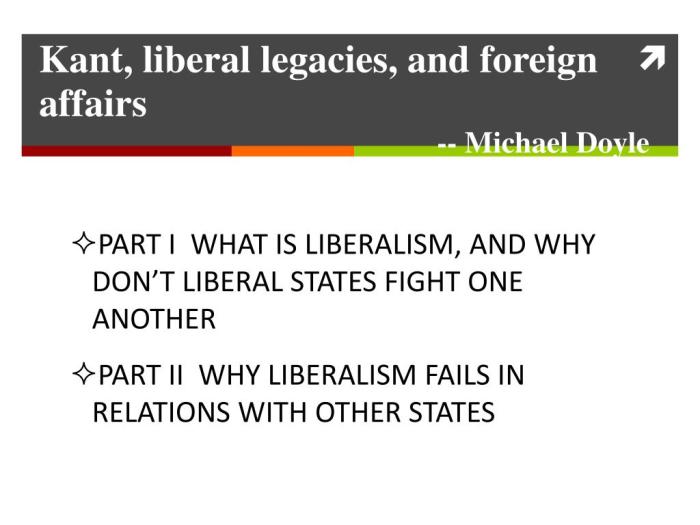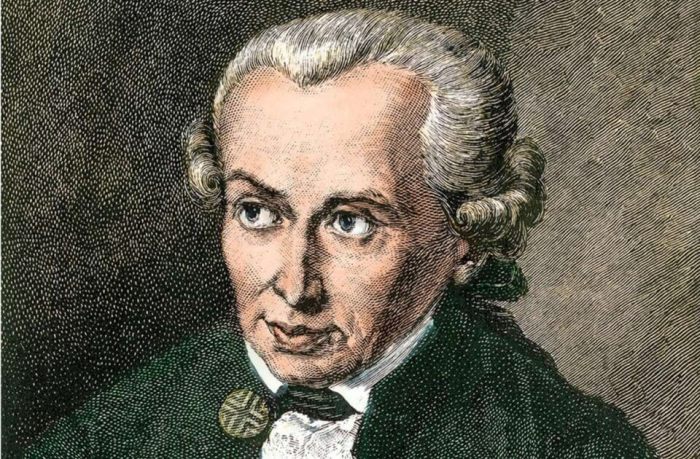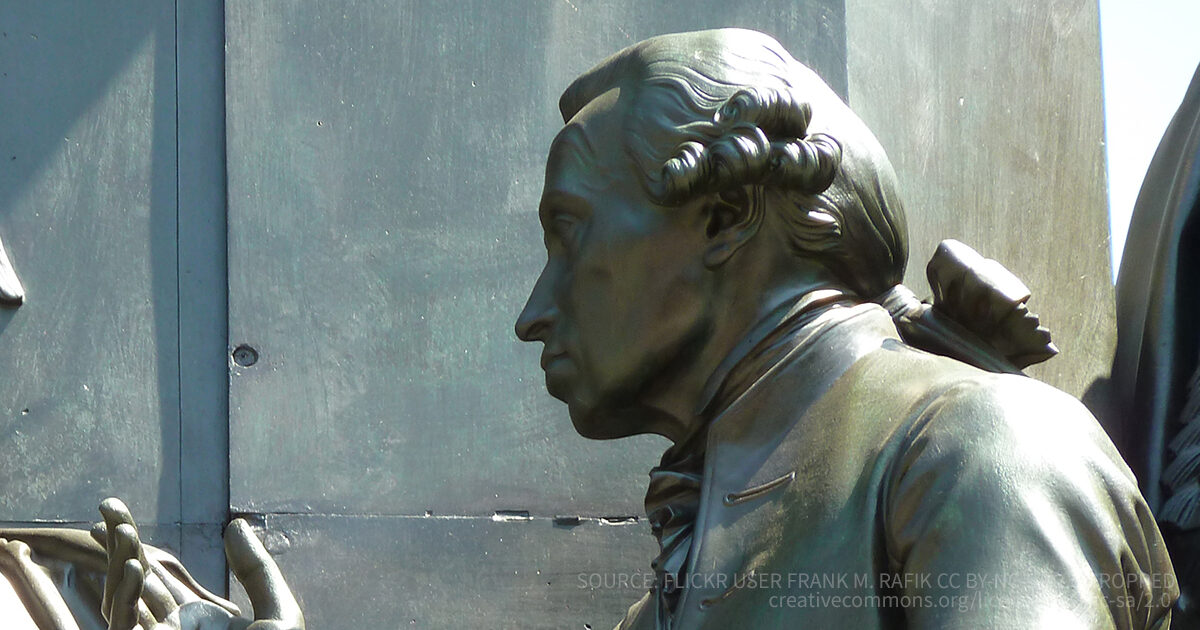Kant liberal legacies and foreign affairs – Kant’s Liberal Legacies and Foreign Affairs explores the profound impact of Immanuel Kant’s philosophy on international relations. Kant’s ideas on morality, justice, and perpetual peace have shaped foreign policy doctrines and continue to inform contemporary debates on global governance.
This work delves into the implications of Kant’s categorical imperative for foreign policy, examines his concept of perpetual peace in relation to contemporary international relations, and analyzes the role of international law in promoting peace and justice.
Kant’s Liberal Legacies in Foreign Affairs: Kant Liberal Legacies And Foreign Affairs

Immanuel Kant’s liberal philosophy has had a profound impact on foreign affairs. His ideas on ethics, international law, and perpetual peace have shaped the conduct of international relations and continue to inform contemporary debates on foreign policy.
Kant’s Categorical Imperative and Foreign Affairs
Kant’s categorical imperative is a moral principle that requires us to act only according to those maxims that we can will to become universal laws. This principle has implications for foreign affairs in that it requires states to consider the interests of other states and to avoid actions that would violate their rights.
Kant’s Concept of Perpetual Peace
Kant’s concept of perpetual peace is a vision of a world in which war has been abolished and replaced by a system of international law and cooperation. Kant believed that perpetual peace could be achieved through a combination of factors, including the spread of democracy, the establishment of a league of nations, and the development of international law.
Kant’s Views on International Law
Kant believed that international law was essential for promoting peace and justice. He argued that states should be bound by the same laws that govern individuals and that violations of international law should be punished. Kant’s views on international law have had a significant impact on the development of international law and continue to inform debates on the role of law in international relations.
Kant’s Impact on Foreign Policy
Kant’s ideas have influenced the development of foreign policy doctrines in a number of ways. For example, Kant’s concept of perpetual peace has inspired the creation of international organizations such as the United Nations and the League of Nations. Kant’s views on international law have also shaped the development of international law and the conduct of international relations.
Kant’s Philosophy and the Conduct of International Relations
Kant’s philosophy has also shaped the conduct of international relations in a number of ways. For example, Kant’s emphasis on the importance of human rights has led to the development of international human rights law. Kant’s views on the role of law in international relations have also influenced the development of international law and the conduct of international relations.
Kant’s Legacy in Contemporary Foreign Policy Debates
Kant’s legacy continues to inform contemporary foreign policy debates. For example, Kant’s concept of perpetual peace is often invoked in discussions about the future of international relations. Kant’s views on international law are also frequently cited in debates about the role of law in international relations.
Kant’s Critics
Kant’s liberal legacies in foreign affairs have been criticized on a number of grounds. Some critics argue that Kant’s ideas are too idealistic and that they do not take into account the realities of international politics. Other critics argue that Kant’s ideas are too Eurocentric and that they do not apply to non-Western societies.
Strengths and Weaknesses of Kant’s Critics, Kant liberal legacies and foreign affairs
There are a number of strengths and weaknesses to Kant’s critics. On the one hand, Kant’s critics are right to point out that his ideas are idealistic and that they do not always take into account the realities of international politics.
On the other hand, Kant’s critics often underestimate the importance of Kant’s ideas and their potential for shaping the future of international relations.
Kant’s Critics and His Influence on Foreign Policy Thinking
Despite the criticisms that have been leveled against him, Kant’s liberal legacies continue to have a significant influence on foreign policy thinking. Kant’s ideas have helped to shape the development of international law and the conduct of international relations, and they continue to inspire debates about the future of international relations.
Kant’s Relevance Today
Kant’s liberal legacies are still relevant today. His ideas on ethics, international law, and perpetual peace offer a valuable framework for thinking about the challenges of contemporary international relations. Kant’s ideas can help us to understand the causes of war and to develop strategies for promoting peace and justice.
Kant’s Ideas and Current Global Issues
Kant’s ideas can be applied to a number of current global issues, including the threat of nuclear war, the rise of terrorism, and the challenges of climate change. Kant’s ideas can help us to understand these issues and to develop strategies for addressing them.
Recommendations for Promoting Peace and Justice
Kant’s philosophy offers a number of recommendations for promoting peace and justice in the world. These recommendations include:
- Promoting democracy and human rights
- Establishing a league of nations
- Developing international law
- Educating people about the importance of peace
FAQ Resource
What is Kant’s categorical imperative?
Kant’s categorical imperative is a moral principle that states that one should only act according to that maxim by which one can, at the same time, will that it should become a universal law.
How does Kant’s concept of perpetual peace relate to contemporary international relations?
Kant’s concept of perpetual peace envisions a global order based on the principles of republicanism, international law, and the peaceful resolution of conflicts. It remains a guiding ideal for efforts to promote cooperation and prevent war in international relations.

